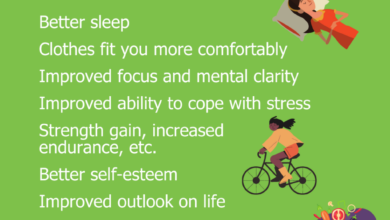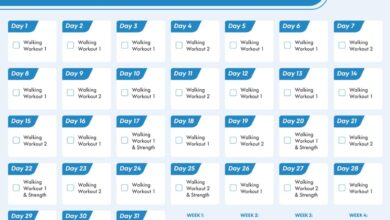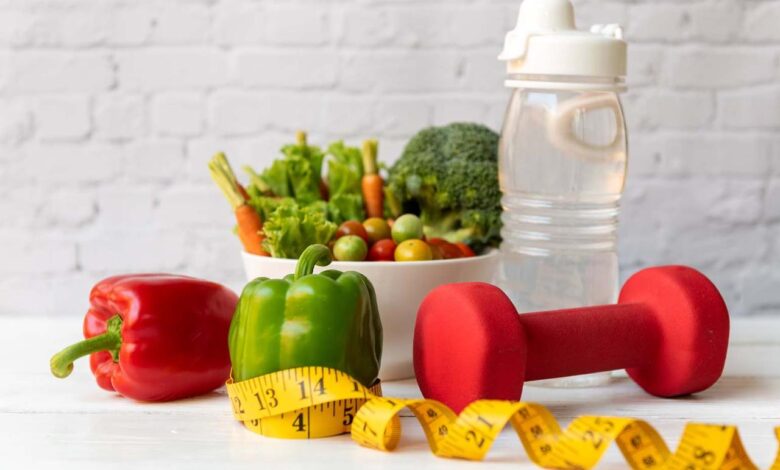
Small Changes to Improve Your Health This Summer
Small changes to improve your health this summer can make a big difference in how you feel and function. Summer is a time for fun and relaxation, but it can also be a time for unhealthy habits to creep in.
By making a few small adjustments to your routine, you can stay healthy and energized throughout the season.
From staying hydrated and eating lighter meals to incorporating outdoor activities and getting enough sleep, these simple tips can help you enjoy the summer months to the fullest. Let’s dive into some practical strategies for keeping your well-being in check this summer.
Summer Hydration
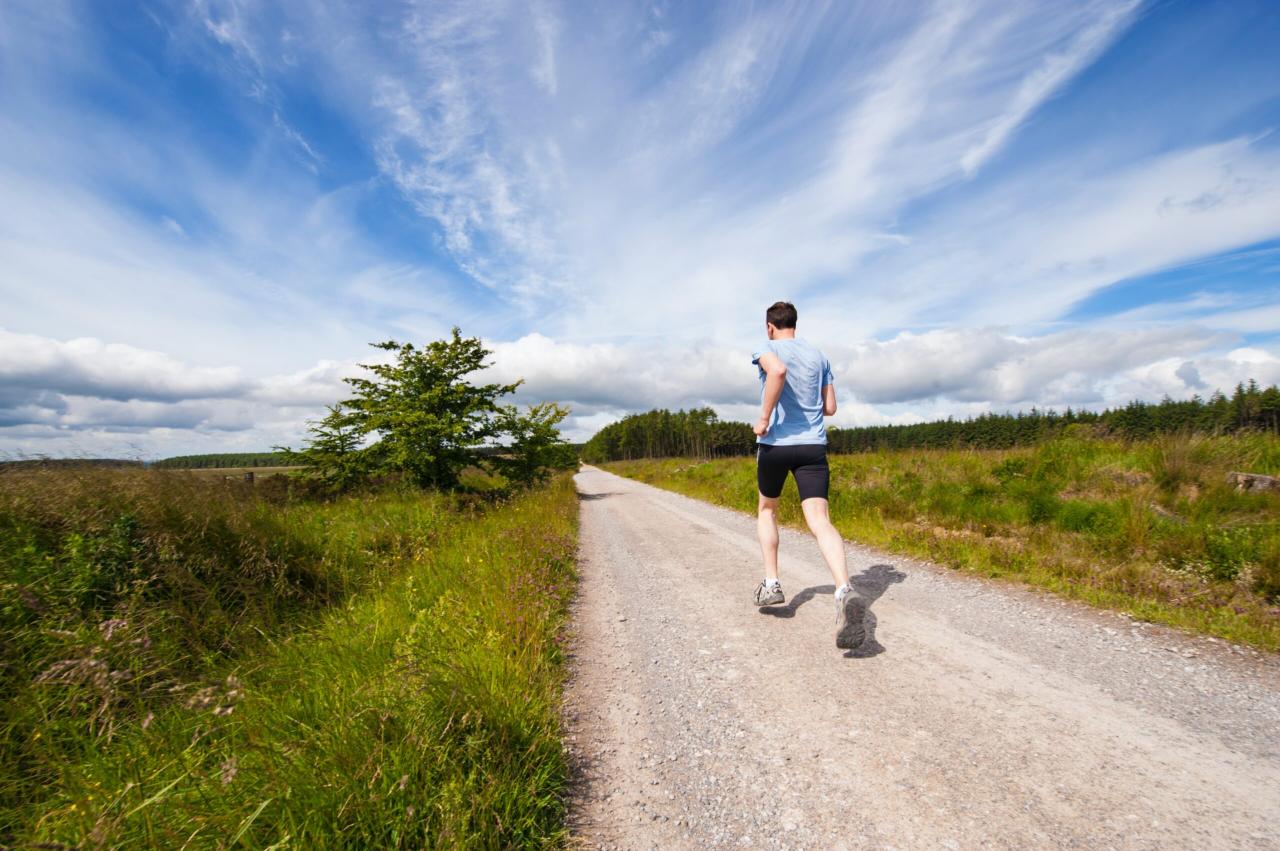
Summer heat can take a toll on your body, especially when you’re active. Staying hydrated is crucial for maintaining energy levels, preventing fatigue, and supporting overall well-being during these warmer months.
Importance of Hydration
Dehydration occurs when your body loses more fluids than it takes in. This can lead to a range of symptoms, including fatigue, dizziness, headaches, and muscle cramps. In severe cases, dehydration can even lead to heat exhaustion or heatstroke.
Healthy Hydration Options
Beyond plain water, several healthy alternatives can help you stay hydrated during summer:
- Infused Water:Add slices of fruits like lemon, cucumber, or berries to your water for a refreshing and flavorful twist.
- Coconut Water:A natural source of electrolytes, coconut water is a great option for rehydrating after a workout.
- Herbal Teas:Chamomile, mint, and ginger teas are all hydrating and can help soothe your body.
- Fruit Smoothies:Blend fruits, vegetables, and yogurt for a nutritious and hydrating drink.
Daily Hydration Schedule
A daily hydration schedule can help you stay on top of your fluid intake:
- Morning:Start your day with a glass of water upon waking.
- Before Exercise:Drink 16-20 ounces of water 2-3 hours before exercising.
- During Exercise:Sip water or a sports drink every 15-20 minutes during exercise.
- After Exercise:Replenish fluids by drinking 20-24 ounces of water or a sports drink.
- Throughout the Day:Aim for 8-10 glasses of water or other hydrating beverages throughout the day.
Water vs. Sports Drinks
While water is the most essential fluid for hydration, sports drinks can be beneficial during intense or prolonged exercise.
- Water:Provides hydration and is the best choice for most activities.
- Sports Drinks:Contain electrolytes, which are lost through sweat during intense exercise. They can help replace these lost electrolytes and improve performance.
Summer Diet: Small Changes To Improve Your Health This Summer

Summer is a time for enjoying fresh, seasonal produce and lighter meals. It’s a great opportunity to nourish your body with nature’s bounty and feel energized for all your summer adventures.
Incorporating Seasonal Fruits and Vegetables
Fruits and vegetables are naturally low in calories and rich in vitamins, minerals, and antioxidants. They are also hydrating, which is essential during the summer months. To maximize the benefits of seasonal produce, incorporate them into your meals and snacks in various ways.
- Grilling: Grilling vegetables like bell peppers, zucchini, and eggplant adds a smoky flavor and creates a healthy and satisfying side dish.
- Salads: Salads are a refreshing and versatile option for summer meals. Experiment with different greens, seasonal fruits, and vegetables, and use light dressings like lemon vinaigrette or balsamic glaze.
- Smoothies: Blending fruits and vegetables into smoothies is a quick and easy way to get a boost of nutrients. Add yogurt, milk, or ice for a refreshing treat.
- Salsas and Relishes: Chopping fruits and vegetables into salsas and relishes adds flavor and texture to meals. Try a mango salsa or a tomato and cucumber relish.
Benefits of Lighter Meals and Snacks
Consuming lighter meals and snacks during the summer can help you stay cool and energized. The focus should be on fresh, whole foods that are easy to digest and provide sustained energy.
Small changes can make a big difference, especially during the summer months. Swap out sugary drinks for refreshing water, incorporate more fruits and veggies into your meals, and get moving with outdoor activities. When it comes to special occasions, you can still enjoy your favorite dishes while making healthier choices.
Check out this helpful guide on how to build a healthier holiday plate to keep your summer wellness on track. By making mindful decisions, you can enjoy the season and feel your best!
- Improved Digestion: Lighter meals put less strain on your digestive system, especially during hot weather.
- Increased Energy: Eating lighter meals helps prevent feeling sluggish and heavy, allowing you to enjoy your summer activities.
- Weight Management: Lighter meals are often lower in calories, which can aid in weight management or maintenance.
- Hydration: Fruits and vegetables are naturally hydrating, helping you stay hydrated throughout the day.
Sample Summer Meal Plan
Here is a sample meal plan featuring fresh, nutritious options:
| Meal | Sample Options |
|---|---|
| Breakfast | Greek yogurt with berries and granola, overnight oats with chia seeds and fruit, smoothie with spinach, banana, and mango |
| Lunch | Grilled chicken salad with mixed greens, avocado, and a lemon vinaigrette, quinoa bowl with roasted vegetables and chickpeas, tuna sandwich on whole-wheat bread with lettuce and tomato |
| Dinner | Salmon with roasted asparagus and a side of quinoa, grilled portobello mushrooms with zucchini noodles and a pesto sauce, lentil soup with whole-wheat bread |
| Snacks | Fruit salad, sliced cucumbers with hummus, a handful of almonds or walnuts, a small handful of dried fruit |
Meal Timing and Portion Control
Meal timing and portion control are crucial for maintaining a healthy diet during the summer.
- Timing: Eat regular meals and snacks throughout the day to prevent excessive hunger and overeating. This also helps maintain stable blood sugar levels and prevent energy dips.
- Portion Control: Be mindful of portion sizes, especially when indulging in summer treats. Focus on consuming whole, unprocessed foods and limit sugary drinks and processed snacks.
Summer Exercise
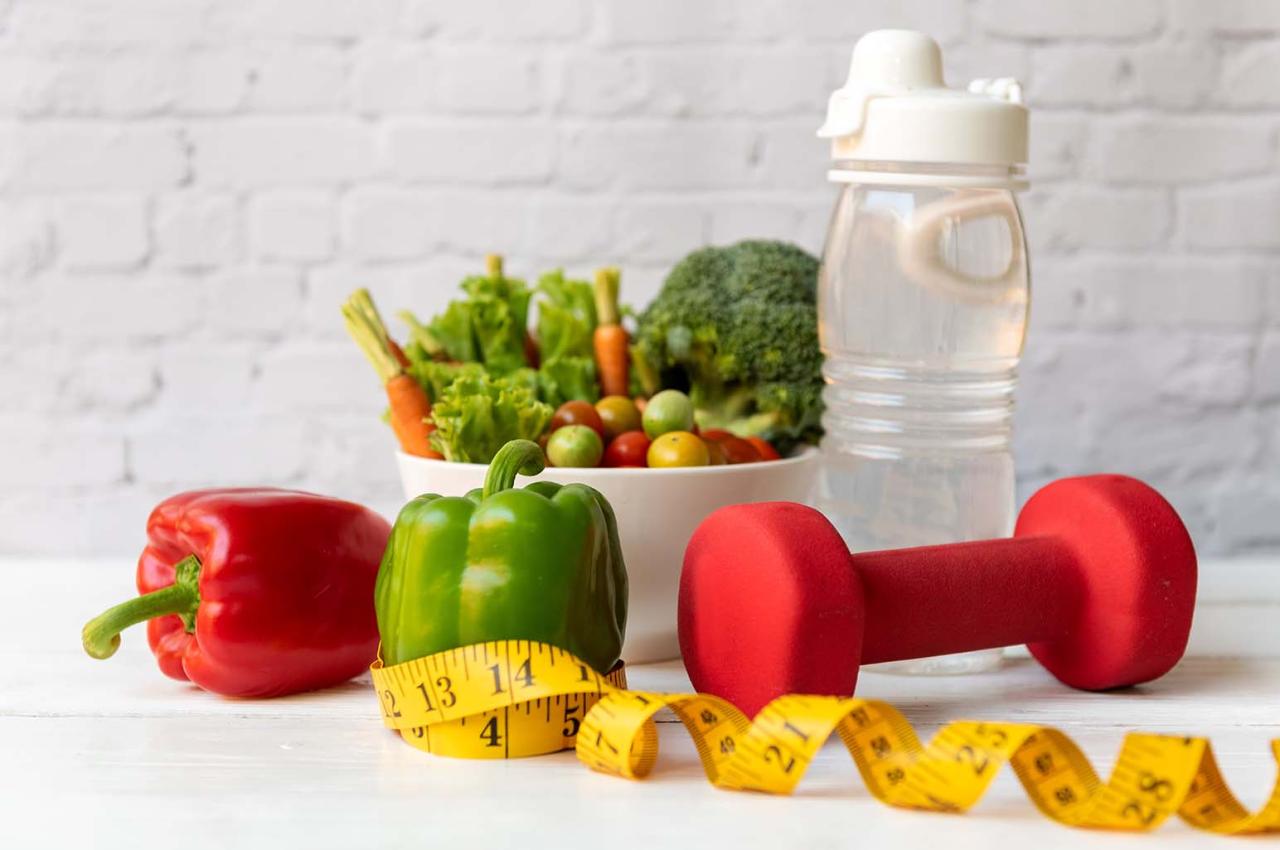
Summer is a time for outdoor activities, and exercise is no exception. However, the heat can make it challenging to stay active. This section will explore the best types of exercise for staying active during the summer heat, provide a sample workout routine, and highlight the importance of proper warm-up and cool-down routines.
Summer is the perfect time to make small changes to improve your health, like swapping sugary drinks for water or adding more fruits and veggies to your diet. If weight loss is a goal, remember that it’s a journey, not a race.
Be mindful of common thinking traps to avoid when trying to lose weight , like all-or-nothing thinking or focusing solely on the scale. Instead, celebrate small victories and focus on sustainable habits that you can maintain throughout the summer and beyond.
Best Types of Exercise for Summer
The best types of exercise for summer are those that are low-impact and can be done in the early morning or evening when temperatures are cooler.
- Swimming:Swimming is a great way to stay cool and get a full-body workout. It is a low-impact activity that is easy on the joints, and it can be enjoyed by people of all fitness levels.
- Cycling:Cycling is another excellent option for summer exercise. You can choose to ride on paved trails or on dirt paths, and you can adjust the intensity of your ride to match your fitness level.
- Yoga:Yoga is a great way to improve flexibility, strength, and balance. It can be done indoors or outdoors, and there are many different types of yoga to choose from.
- Hiking:Hiking is a great way to get some fresh air and exercise. Choose trails that are shaded and have access to water, and be sure to bring plenty of water with you.
Sample Workout Routine
Here is a sample workout routine that incorporates both outdoor and indoor activities:
- Warm-up:5-10 minutes of light cardio, such as walking or jogging in place.
- Outdoor Activity:30-45 minutes of swimming, cycling, or hiking.
- Indoor Activity:20-30 minutes of strength training or yoga.
- Cool-down:5-10 minutes of stretching.
Warm-up and Cool-down Routines, Small changes to improve your health this summer
Warm-up and cool-down routines are especially important during summer exercise.
- Warm-up:Warming up helps to prepare your body for exercise by increasing your heart rate and blood flow. This can help to prevent injuries.
- Cool-down:Cooling down helps to gradually reduce your heart rate and blood flow. This can help to prevent muscle soreness and stiffness.
Adjusting Exercise Intensity
It is important to adjust your exercise intensity based on weather conditions.
- Stay Hydrated:Drink plenty of water before, during, and after your workout.
- Listen to Your Body:If you start to feel overheated, stop exercising and find a cool place to rest.
- Avoid Exercising During the Hottest Times of Day:If possible, exercise in the early morning or evening when temperatures are cooler.
Summer Sleep
Summer is a time for relaxation and enjoying the outdoors, but the longer days and warmer temperatures can disrupt your sleep patterns. The heat can make it difficult to fall asleep and stay asleep, leading to feelings of fatigue and irritability.
The Impact of Summer Heat on Sleep Quality
Summer heat can significantly impact sleep quality. When the temperature rises, your body has to work harder to regulate its internal temperature. This can lead to:
- Difficulty falling asleep
- Frequent awakenings during the night
- Light, non-restorative sleep
- Increased sweating
- Restlessness
A study published in the journal “Sleep” found that people who slept in rooms with temperatures above 75°F experienced poorer sleep quality, including a decrease in sleep duration and an increase in the number of awakenings.
Creating a Cool and Comfortable Sleep Environment
Creating a cool and comfortable sleep environment is crucial for getting a good night’s sleep during the summer months. Here are some tips:
- Keep your bedroom cool: Use fans, air conditioners, or open windows at night to keep the temperature down. Consider using blackout curtains to block out sunlight and heat during the day.
- Take a cool shower or bathbefore bed to lower your body temperature.
- Wear loose-fitting, breathable pajamasmade of natural fibers like cotton.
- Avoid heavy blanketsand opt for lighter options or even just a sheet.
- Ensure good ventilationin your bedroom.
Maintaining a Consistent Sleep Schedule
Maintaining a consistent sleep schedule throughout the summer is essential for regulating your body’s natural sleep-wake cycle, known as the circadian rhythm.
- Go to bed and wake up around the same time each day, even on weekends.
- Avoid napping during the day, especially late in the afternoon.
Relaxing Activities to Promote Better Sleep
Engaging in relaxing activities before bed can help signal to your body that it’s time to wind down and prepare for sleep. Here are some ideas:
- Take a warm bath or shower: The heat can help relax your muscles and prepare your body for sleep.
- Read a book: Choose a calming book that won’t stimulate your mind.
- Listen to calming music: Soft, relaxing music can help you unwind.
- Practice meditation or deep breathing exercises: These techniques can help reduce stress and promote relaxation.
- Avoid screen timefor at least an hour before bed. The blue light emitted from electronic devices can interfere with melatonin production, a hormone that regulates sleep.
Summer Sun Safety
Summer is a time for fun in the sun, but it’s important to remember that excessive sun exposure can be harmful. The sun’s ultraviolet (UV) rays can damage your skin, leading to sunburn, premature aging, and even skin cancer.
Risks of Excessive Sun Exposure
Excessive sun exposure can have several negative effects on your health.
- Sunburnis the most immediate and obvious consequence of too much sun. It occurs when the skin’s cells are damaged by UV rays, causing redness, pain, and inflammation.
- Premature agingis another common consequence of sun exposure. UV rays break down collagen and elastin, the proteins that give skin its elasticity and firmness. This can lead to wrinkles, age spots, and a leathery appearance.
- Skin canceris the most serious risk associated with excessive sun exposure. The sun’s UV rays can damage DNA in skin cells, leading to uncontrolled cell growth and the development of cancer. The most common types of skin cancer are basal cell carcinoma, squamous cell carcinoma, and melanoma.
- Eye damage, including cataracts and macular degeneration, can also be caused by excessive sun exposure. UV rays can damage the delicate tissues of the eye, leading to vision problems.
- Weakened immune system: UV radiation can suppress the immune system, making you more susceptible to infections and diseases.
Applying Sunscreen Effectively
Sunscreen is essential for protecting your skin from the sun’s harmful rays.
- Choose a broad-spectrum sunscreenthat protects against both UVA and UVB rays.
- Use a sunscreen with an SPF of 30 or higher. SPF stands for Sun Protection Factor, and it measures how well a sunscreen protects your skin from UVB rays, which cause sunburn.
- Apply sunscreen liberally and evenly to all exposed skin, including your face, ears, neck, arms, legs, and the tops of your feet.
- Reapply sunscreen every two hours, or more often if you are swimming or sweating.
- Apply sunscreen 20 minutes before going outsideto allow it to absorb into your skin.
- Don’t forget to protect your lipswith a lip balm that has an SPF of 30 or higher.
- Even on cloudy days, UV rays can penetrate cloudsand reach your skin. So, it’s important to wear sunscreen even on cloudy days.
Summer Wardrobe for Sun Protection
Choosing the right clothes can significantly enhance your sun protection.
Summer is the perfect time to make small changes to improve your health, like swapping sugary drinks for water and getting more active. But who says healthy choices have to be boring? You might be surprised to learn that even your favorite comfort food, grilled cheese, can be made healthier! Check out this article on can grilled cheese be healthy to see how to make it a little bit better for you.
And remember, small changes add up, so even if you don’t completely overhaul your diet, you can still enjoy summer and feel good about it!
- Wear loose-fitting, light-colored clothingthat covers your skin. Darker colors absorb more heat and light.
- Choose fabrics with a tight weave, as they offer better protection from UV rays.
- Wear a wide-brimmed hatto protect your face, ears, and neck from the sun.
- Wear sunglasses that block 99% to 100% of UVA and UVB rays.
Staying Cool and Safe During Outdoor Activities
Summertime outdoor activities can be enjoyable, but it’s crucial to prioritize safety and well-being.
- Stay hydratedby drinking plenty of water, especially during strenuous activities.
- Take breaks in the shade, especially during the hottest parts of the day.
- Avoid strenuous activities during the hottest parts of the day.
- Dress in light, loose-fitting clothingto help your body stay cool.
- Be aware of the signs of heat exhaustion and heat stroke. Heat exhaustion is characterized by fatigue, dizziness, headache, nausea, and muscle cramps. Heat stroke is a more serious condition and can be life-threatening. If you experience any of these symptoms, seek medical attention immediately.
Summer Stress Management
Summer is a time for fun and relaxation, but it can also be a time of increased stress. The pressure to make the most of the season, attend social events, and maintain a healthy lifestyle can take a toll on your well-being.
It’s crucial to incorporate stress management strategies into your summer routine to ensure you enjoy the season to the fullest.
Common Summer Stressors
Summer activities and social events can contribute to stress. Common stressors include:
- Travel:Planning and navigating travel arrangements, dealing with delays, and adjusting to unfamiliar environments can be stressful.
- Social Events:The pressure to attend numerous gatherings, maintain a social calendar, and manage expectations can be overwhelming.
- Financial Strain:Summer activities, such as vacations, outings, and entertainment, can put a strain on your budget.
- Work-Life Balance:Balancing work responsibilities with summer plans can lead to feelings of being overwhelmed.
- Heat and Humidity:Extreme temperatures and humidity can negatively impact mood and energy levels, leading to irritability and fatigue.
Importance of Relaxation Techniques
Relaxation techniques are essential for managing summer stress. They help to calm your mind and body, reduce anxiety, and improve overall well-being.
Healthy Coping Mechanisms
Here are some healthy coping mechanisms for dealing with summer stress:
- Practice Mindfulness:Engage in mindfulness exercises, such as meditation or deep breathing, to focus on the present moment and reduce anxious thoughts.
- Engage in Physical Activity:Exercise releases endorphins, which have mood-boosting effects. Try activities you enjoy, like swimming, hiking, or biking.
- Spend Time in Nature:Being outdoors has a calming effect on the mind and body. Take walks in parks, go for hikes, or simply relax in your backyard.
- Connect with Loved Ones:Social connections provide support and reduce feelings of isolation. Spend time with friends and family, or join social groups.
- Set Realistic Expectations:Avoid overcommitting to activities and events. Learn to say no to requests that will add to your stress levels.
- Prioritize Self-Care:Make time for activities that nourish your mind and body, such as reading, taking a bath, or getting a massage.
- Limit Screen Time:Excessive screen time can increase stress and anxiety. Limit your exposure to news, social media, and other digital distractions.
- Get Enough Sleep:Adequate sleep is essential for managing stress. Aim for 7-8 hours of quality sleep each night.
- Practice Gratitude:Focusing on the positive aspects of your life can help to shift your perspective and reduce stress.
Creating a Calm and Relaxing Summer Environment
Creating a calm and relaxing environment at home can help to reduce stress. Here are some tips:
- Declutter Your Space:A cluttered environment can be overwhelming. Take time to declutter your home and create a sense of order.
- Use Soothing Colors:Choose calming colors for your décor, such as blues, greens, and purples. Avoid bright or stimulating colors.
- Incorporate Natural Elements:Bring the outdoors in by incorporating plants, flowers, and natural materials into your décor.
- Play Relaxing Music:Create a calming atmosphere with soothing music, such as classical, ambient, or nature sounds.
- Use Aromatherapy:Certain scents, such as lavender, chamomile, and sandalwood, have calming effects. Use essential oils or candles to create a relaxing ambiance.
Last Point
Summer is a season for enjoying the outdoors, but it’s important to remember that our bodies need extra care during these warmer months. By making small, conscious changes to our daily routines, we can not only stay healthy but also enhance our enjoyment of the season.
Remember, it’s about finding a balance between indulging in summer fun and prioritizing our well-being. So, embrace the sunshine, stay hydrated, and make this summer a healthy and happy one!

